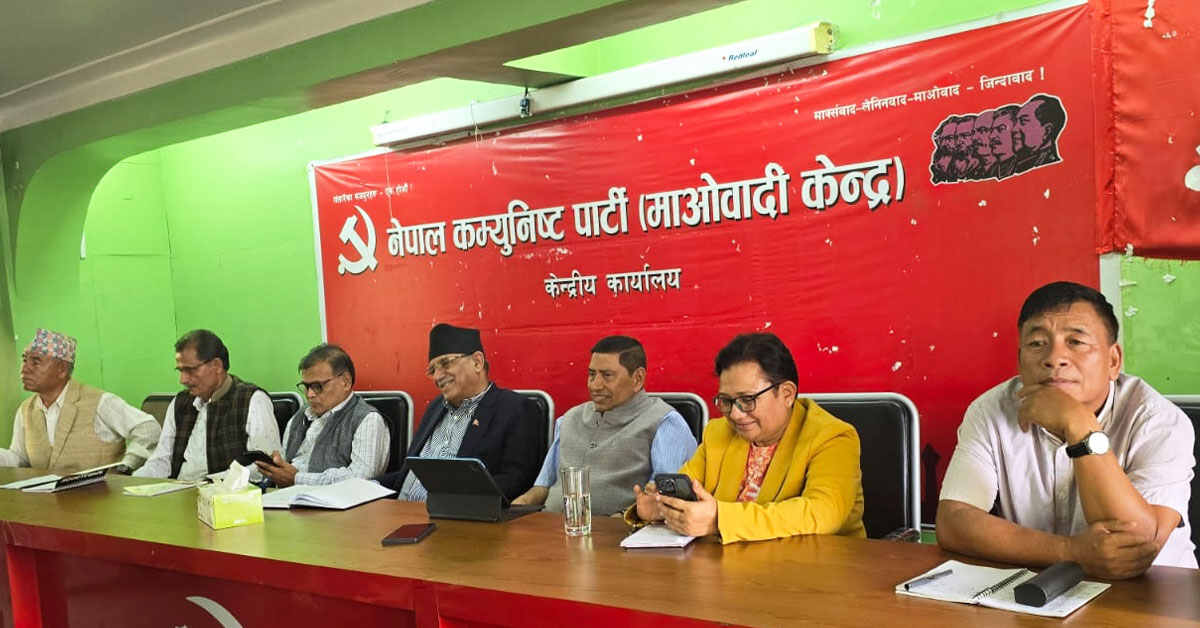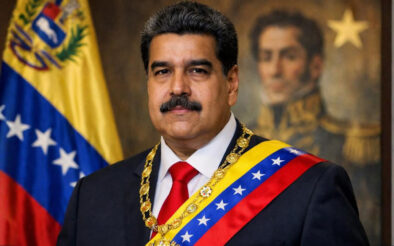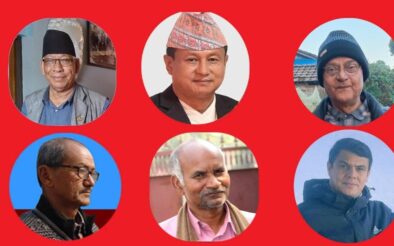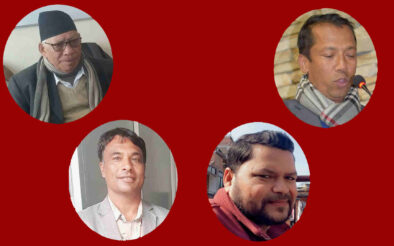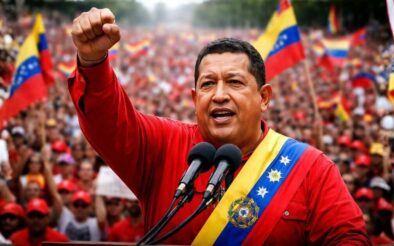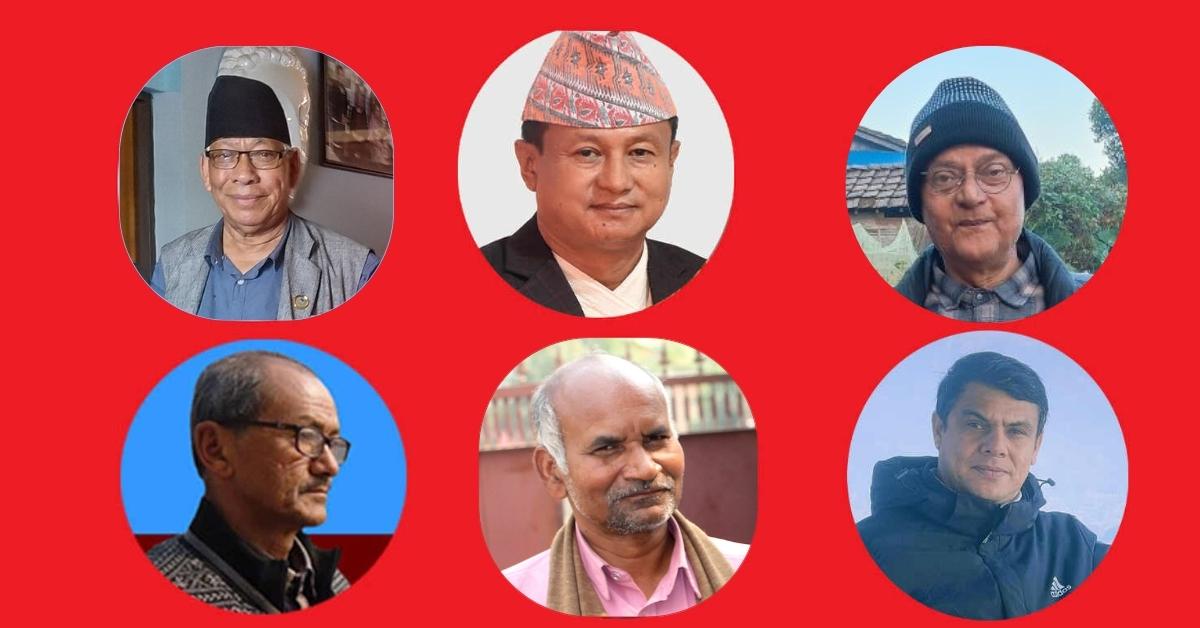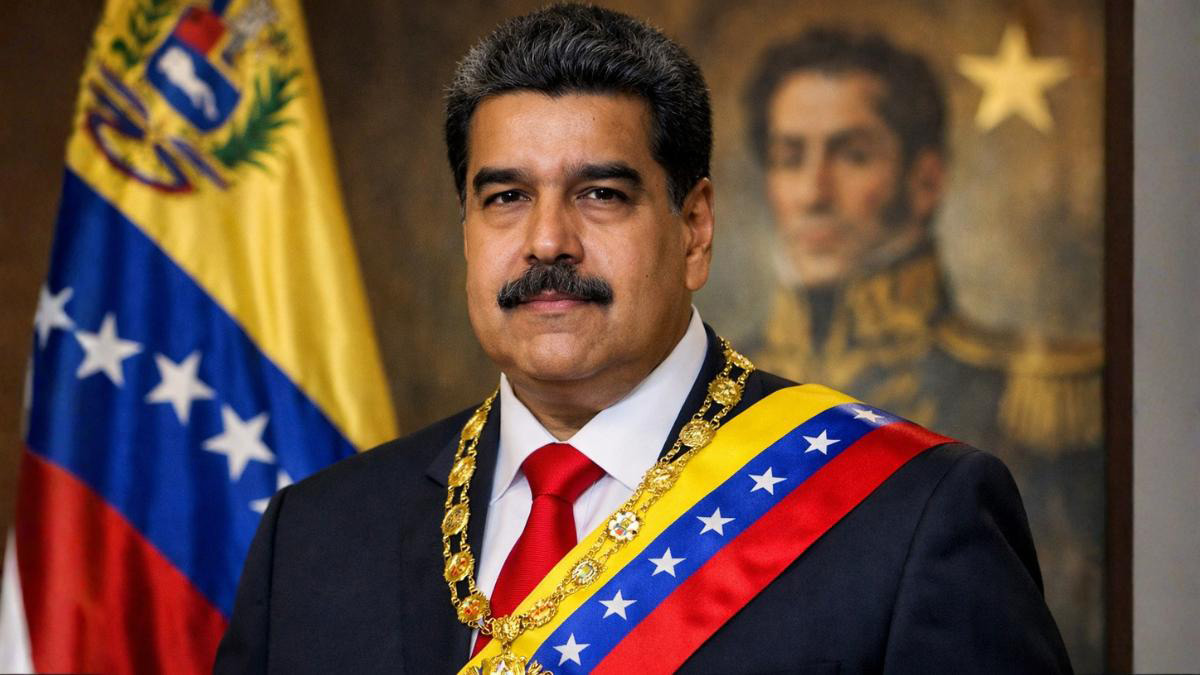Kathmandu . The Standing Committee meeting of the Communist Party of Nepal (Maoist Centre), held for four days starting Friday, 16th of Shrawan 2082 (1st August, 2025), concluded splendidly on Monday with a collective commitment toward strengthening the party’s internal unity, following intense and spirited ideological discussions. The meeting unanimously endorsed the political, organizational, and contemporary proposals presented by Party Chairperson Comrade Pushpa Kamal Dahal ‘Prachanda’.
Disappointing both domestic and foreign reactionary forces who were eagerly anticipating escalating disputes, party division, and the collapse of internal unity within the CPN (Maoist Centre), the much-discussed Standing Committee meeting of the party has concluded with important decisions aimed at ensuring organizational unity and ideological clarity. Rising to meet the expectations of revolutionaries across the world, the meeting upheld the value of ideological freedom and internal debate, while reaching the consensus that uniformity in implementation is essential.
Furthermore, the meeting has forged a collective resolve to put an end to factionalism and interest groups engaged in activities driven by personal gain and contrary to the interests of the party.
The CPN (Maoist Centre) Chairman Comrade Pushpa Kamal Dahal ‘Prachanda’, has stated that a collective resolve has been reached within the party to put an end to factionalism. He made this remark during a brief conversation with journalists while leaving the party’s central office at Paris Danda on Monday, following the conclusion of the Standing Committee meeting.
Chairman Prachanda said, “We have made a collective commitment to end all forms of factionalism and groupism with a spirit of unity. We have pledged together, and once again, a decision has been made to go among the people and launch a movement against the irregularities and anomalies seen in the country.”
Due to the ongoing internal and public debates within the party for some time, Nepal’s proletariat had been closely observing this high-level meeting of the CPN (Maoist Centre). The meeting concluded with a firm stance against regression and status quoism, declaring that socio-economic transformation and prosperity with social justice are the national tasks of the present time.
Party Vice Chairman and spokesperson Comrade Agni Prasad Sapkota stated that the meeting also decided to initiate dialogue and advance efforts toward party unification with revolutionary forces, including the Netra Bikram Chand ‘Biplav’-led Communist Party of Nepal (CPN), and to emphasise the strengthening and expansion of the Socialist Front. He further informed that discussions are also underway regarding unification with CPN (Unified Socialist).
Speaking to journalists at the party’s central office in Parisdanda, spokesperson Agni Prasad Sapkota stated that the party has decided to take disciplinary action against leaders and cadres involved in activities that go against party decisions. He said, “The meeting has decided to form various committees down to the lower levels to monitor issues related to factions and sub-factions within the party.”
Highlighting that the meeting had taken several important decisions regarding party purification and transformation, Spokesperson Sapkota informed that the party will now be run in an organized manner through the formulation of a code of conduct and regulations, and that it will operate strictly within a system, procedures, and due processes.
The meeting also decided to resume the People’s Awareness Campaign focused on the Mid-Hill Highway, which had been postponed due to heavy rainfall, starting from the third week of Bhadra 2082. Additionally, as per the schedule set during the party’s National Convention of 2079 B.S., the Central Committee meeting will be held after this year’s Dashain festival, and the date for the next National Convention will be finalised in that meeting.
With the formation of the Oli government, corruption and misgovernance have become increasingly evident in the country. In response, the CPN (Maoist Centre) has concluded that the government and corruption have now become synonymous, fueling widespread public outrage.
In light of this, the party has demanded that the government take decisive steps against corruption, including the formation of a powerful, high-level commission with full authority to investigate the assets of public office holders and high-ranking leaders.
The CPN (Maoist Centre), which stands as the sole center of hope and trust for Nepal’s working farmers, laborers, landless Dalits, squatters, women, teachers, civil servants, and the broader Nepali populace, has passed a 26-point contemporary political proposal from its Standing Committee meeting. This proposal addresses key issues related to nationalism, people’s democracy, livelihood, good governance, social justice, and international solidarity. Alongside the proposal, the party has also issued a stern warning to the Oli government.
The Standing Committee of the CPN (Maoist Centre) includes the following leaders: Chairman Comrade Pushpa Kamal Dahal ‘Prachanda’, Senior Vice Chairman Comrade Narayan Kaji Shrestha ‘Prakash’, Vice Chairmen Comrade Krishna Bahadur Mahara, Comrade Agni Prasad Sapkota, Comrade Pampha Bhusal, Comrade Nanda Bahadur Pun ‘Pasang’, General Secretary Comrade Dev Prasad Gurung, Deputy General Secretaries Comrade Giriraj Mani Pokharel, Comrade Barshaman Pun, Comrade Haribol Prasad Gajurel, Comrade Janardan Sharma, Comrade Shakti Bahadur Basnet, Comrade Matrika Prasad Yadav, Secretaries Comrade Dinanath Sharma, Comrade Chakrapani Khanal, Comrade Devendra Paudel, Comrade Lilamani Pokhrel, Comrade Ganesh Shah, Comrade Hitman Shakya, Comrade Hitraj Pandey, Comrade Dilaram Acharya, Comrade Surendra Kumar Karki (Ram Karki), Comrade Ganga Narayan Shrestha, Treasurer Comrade Shriram Dhakal and Members Comrade Anjana Bishankhe, Comrade Amrita Thapa, Comrade Onsari Gharti, Comrade Urmila Aryal, Comrade Kamala Roka, Comrade Kalibahadur Malla, Comrade Kul Prasad KC, Comrade Khagaraj Bhatta, Comrade Ganeshman Pun, Comrade Jayapuri Gharti, Comrade Jokh Bahadur Mahara, Comrade Parshuram Tamang, Comrade Purnakumari Subedi, Comrade Pralhad Kumar Budhathoki, Comrade Maheshwar Jung Gahatraj ‘Athak’, Comrade Yasoda Gurung Subedi, Comrade Rekha Sharma, Comrade Bishwanath Sah, Comrade Shashi Shrestha, Comrade Satya Pahadi, Comrade Hakikullah Musalman, and Comrade Vijay Prakash Saiju. Additionally, as per the party constitution, the heads of the Senior Communist Forum, Central Advisory Committee, Central Disciplinary Commission, Central Audit Commission, and Central Election Commission are ex-officio members of the Standing Committee.
Contemporary Political Proposals endorsed by the Standing Committee Meeting of CPN (Maoist Centre):
1. The party extends heartfelt tribute to all known and unknown martyrs who sacrificed their invaluable lives in the historic People’s War, the People’s Movement, Madhesh Movement, and other political and social struggles carried out by the Nepali people for federal democratic republic, social justice, and national sovereignty. It also expresses deep respect to the disappeared, injured, and disabled fighters, and firmly resolves to move forward by upholding their ideals.
2. We express our serious concern over the severe water crisis currently seen in most parts of the Terai-Madhesh region. Due to the rampant exploitation of the Chure region, negligence in policy-level management, and indifference in the management of water resources, farmers have been deprived of paddy transplantation. The drying up of water sources, lack of proper irrigation facilities, destruction of Chure hills, illegal extraction of natural resources, and deforestation have led to environmental imbalance, causing the Terai-Madhesh region to fall into a geological crisis.
In this context, the meeting expresses deep concern over the government’s indifference and negligence toward the complex problems faced by the farming communities in the Terai-Madhesh region and strongly urges the government to immediately provide relief to the farmers affected by the drought. Furthermore, it demands the formulation of both short-term and long-term plans for the development of a self-reliant agricultural economy in the Terai-Madhesh region and beyond. The meeting also calls for the implementation of the ‘Decade of Investment in Agriculture’ program proposed by our party-led government.
3. As the festive season approaches, the rise in prices of essential consumer goods has made people’s lives even more difficult. Therefore, the meeting urges the government to immediately control price hikes and black-marketing, and to stop actions at the border that cause hardship to ordinary citizens entering the country.
4. The meeting expresses serious objection to the delay in the School Education Bill, which is linked to the future of hundreds of thousands of students and the nation as a whole, due to the influence of certain vested interest groups. The meeting urges the government to immediately implement the agreements reached earlier with the Teachers’ Federation and to promptly pass the bill. It also demands that the Nepal Police Bill be expedited.
5. The meeting strongly condemns the government’s attitude of protecting individuals close to those in power instead of taking action against cooperative fraudsters, and of failing to take effective measures in favor of the victims. It demands the return of the victims’ savings and strict legal action against the culprits.
6. Our party expresses deep concern over the escalating tensions in various regions, including West Asia and the Middle East. Supporting the United Nations’ two-state solution proposal, it deems justified the Palestinian people’s demand for an independent and sovereign state with the right to self-determination. It also condemns the genocide being carried out by Israel in the Gaza Strip.
Calling on all concerned parties to resolve the issues peacefully through dialogue, the party draws the government’s serious attention to increasing diplomatic efforts for the release of Bipin Joshi, who has been taken captive by the Hamas group, and for the safety of hundreds of thousands of Nepalis in the Middle East and other regions.
7. Expressing heartfelt condolences to those who lost their lives in the Bhote Koshi–Trishuli River flood in Rasuwa and deep sympathy to the families of the deceased, the party calls on the government to arrange free treatment for the injured. It strongly urges the government to provide relief to flood-affected people, focus on relief, rehabilitation, and the reconstruction of damaged infrastructure, and prioritize disaster preparedness.
8. Draws the government’s serious attention to the delay in the reconstruction of earthquake-affected areas, including Jajarkot and Rukum.
9. Draws the government’s attention to making appropriate arrangements to facilitate the advancement of the remaining tasks of the peace process in accordance with the spirit and essence of the peace agreement.
10. The situation is extremely worrying as farmers have not received fertilizer even though the rice planting season is in its final stage. The meeting condemns the influence of middlemen and corrupt practices in the import and distribution of fertilizers. It calls for the provision of fertilizers and seeds as per agricultural needs and for setting the support price for agricultural produce in a timely manner.
11. It strongly demands an increase in the minimum wage for workers in the informal sector.
12. The meeting demands enhancing diplomatic efforts to resolve border-related issues observed in various parts of the country. It also calls on the government to take effective measures to control the increasing smuggling in border areas.
13. The meeting strongly condemns the intervention of the executive over the legislature, which is against the principle of separation of powers. The illegal directives issued by the Prime Minister-led party regarding the Federal Civil Service Bill and the assault on the legislative process are unacceptable. Expressing serious concern over this, the meeting strongly urges the government to address the concerns of the relevant bodies and promptly pass the bill.
14. Expressing serious objection to the government’s conspiracy to introduce a land-related bill favoring land mafias and middlemen, the meeting demands the immediate presentation of a progressive land bill in Parliament that delivers justice to the landless and squatter populations.
15. Despite ongoing corruption allegations against government ministers, the failure to initiate investigations confirms the state’s complete lack of accountability towards good governance. This meeting strongly opposes the government’s anti-governance actions and demands investigations into the accused ministers.
16. This meeting strongly opposes the 50 percent cut in subsidies provided to sugarcane farmers and demands immediate justice for the farmers.
17. Dairy farmers who have yet to receive their promised payments from the government are facing serious difficulties. The meeting demands that they be paid immediately.
18. Where there is government, widespread corruption has now become synonymous, and the meeting takes the growing public anger very seriously. It demands the formation of a high-level, empowered commission to take decisive action against corruption and to investigate the assets of public officials and high-ranking leaders.
19. The meeting strongly opposes attempts to undermine the constitutional rights of women, achieved through historic sacrifices, by interfering in various ways and trying to enact laws against gender equality. It demands the government immediately end anti-women practices and declare a nationwide campaign against ‘Chhaupadi’ and violence against women.
20. The meeting strongly condemns the discrimination by the state against the Dalit community, which suffers from the vicious cycle of caste-based discrimination and economic exploitation. It demands the government immediately draft the Dalit Act and establish a Dalit Development Authority endowed with special rights to implement the constitutional rights of the Dalit community.
21. The meeting strongly objects to the politicization of the electricity sector driven by the interests of brokers and middlemen, despite sufficient foundations having been laid for self-reliance and export. In light of recurring load-shedding in some areas and the significant increase in electricity leakage, which had previously reached very low levels, the meeting strongly demands good governance and transparency in the electricity sector.
22. The meeting expresses serious objection to the violation of meritocracy and the interference of partisan politics in Tribhuvan University and other educational institutions, considering it highly unfortunate. It demands the end of partisan interests in the education sector and calls for the development of higher education to build skilled human resources in line with national needs.
23. Demands an end to interference in constitutional bodies and the practice of selective investigation and prosecution.
24. Expressing regret over the government’s negligence regarding the filling of vacant positions in constitutional bodies, including the Election Commission, the meeting demands that the process of filling these vacancies be expedited immediately.
25. Expressing objection to the reduction of the budget for the startup program promoted to encourage youth entrepreneurship and the development of the allocated budget as a mechanism for distributing funds among party workers, the meeting demands investment in projects based on creative and innovative ideas of youth through a scientific system.
26. Condemning and denouncing the successive anti-people measures taken by the government in favor of brokers and middlemen, the meeting sincerely appeals to all to unite and move forward on issues related to good governance, democracy, and people’s livelihoods.

